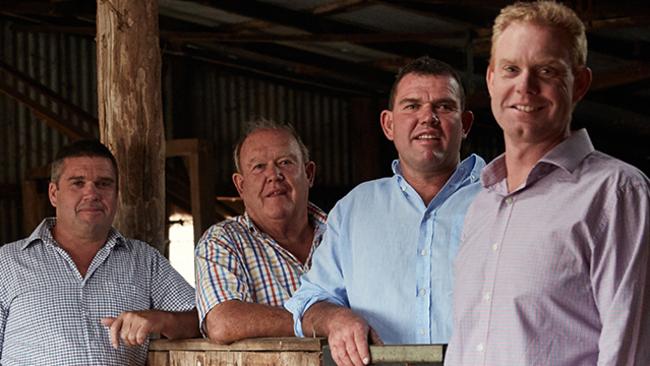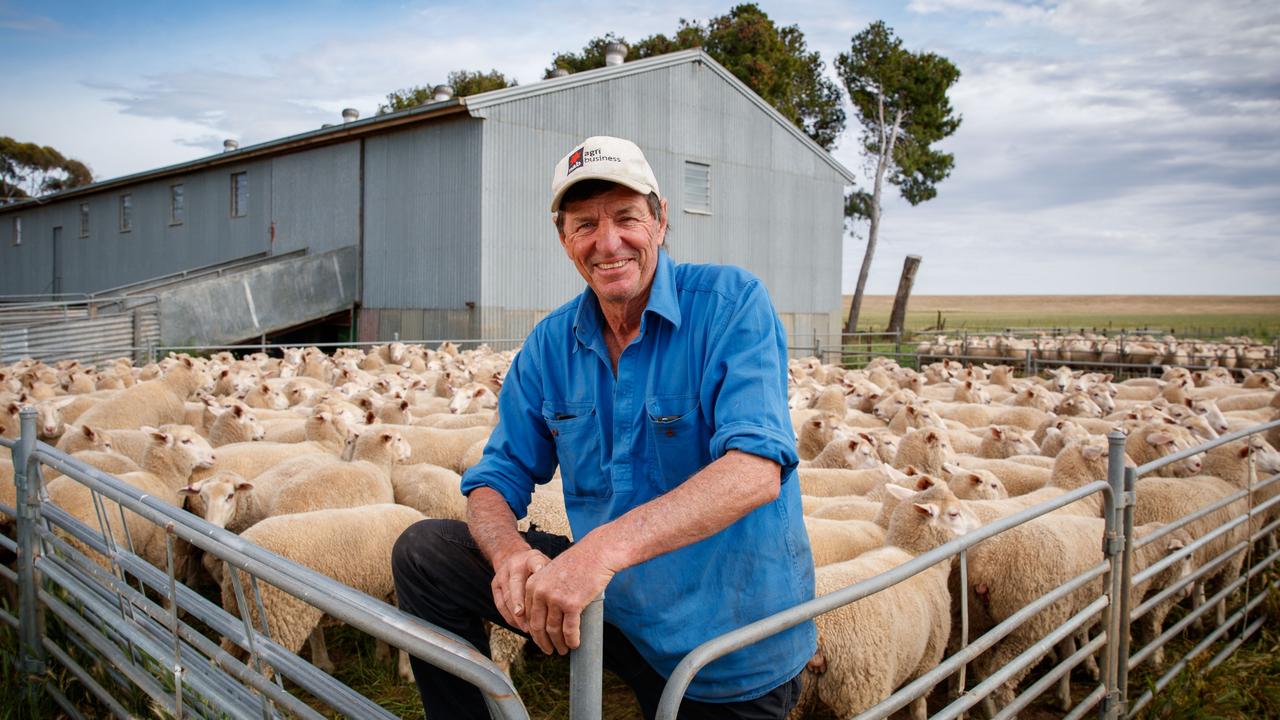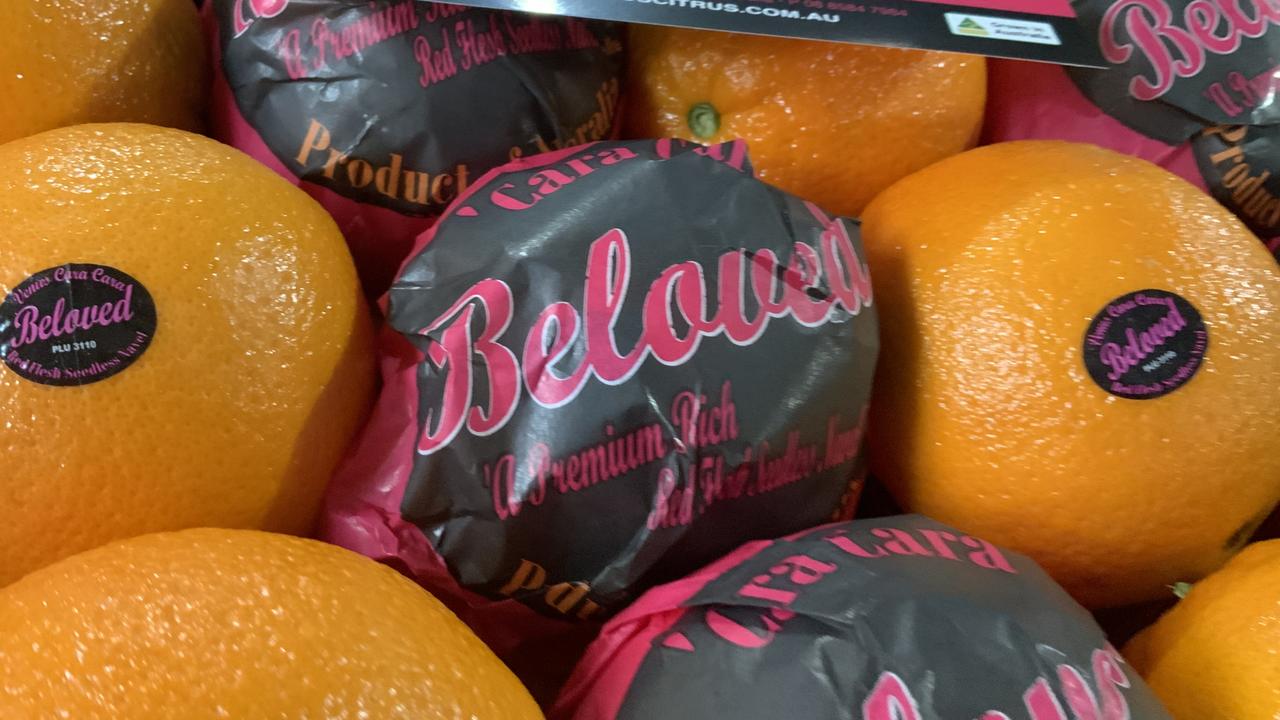Bruce Peat of Three Rivers Specialty Meats at Echuca stakes a claim
BUTCHER, abattoir owner, farmer, Bruce Peat has done it all. But while these days he spends most time on his 2630ha property, he remains a meat processor at heart.

BUTCHER, abattoir owner, farmer — Bruce Peat has done it all.
But while these days he spends most time on his 2630ha property, Bultarra, at Bunnaloo in southern NSW, he remains a meat processor at heart.
“The average weight of a sheep when I first started was 17kg,” said Bruce, while deftly boning a carcass.
“Now it’s 22kg and we get them up as big as 26kg.”
Bruce recently gave a butchery masterclass to a group of visiting Melbourne chefs at his family’s Echuca abattoir, Riverside Meats, which he runs with his three sons, Chris, Haydn and Stuart Peat.
The chefs were visiting for the launch of the Peats’ new branded, value-added meat business, Three Rivers Specialty Meats, which is processed at Riverside before being sold to restaurants and butchers.
The new meat brand underscores that Bruce — butcher, meat processor and farmer — continues to reinvent himself to keep pace with an ever-evolving industry.
“We grow it, we feed it, we process it, there’s no middle man,” said the 72-year-old. “This way we are price makers, not price takers.
“If (major supermarkets are) processing 55,000 lambs a week then we’ve got to do something different to make the business work.
“People are looking for food that has a place of origin and so you can’t just sit back and compete doing the norm, keep doing the same thing for 30 years, because it won’t work.”
SHIP SHAPE
THREE Rivers Specialty Meats launched in April with saltbush-raised spring lamb, but will extend the brand to the Peats’ own beef, eventually hoping to expand further to export markets.
Bruce also runs 400ha across three different properties around Echuca purchased in the 1970s. Here he rears 200 self-replacing pure bred Shorthorn cattle, using Yamburgan genetics from Narrabri, and cuts 3000 rolls of hay annually.
“As a butcher, some of the best meat I ever cut was Shorthorn cattle — the yield, the flavour and the weight it presented, they’re also docile and structurally sound cattle, with fat dispersal through the meat,” Bruce said.
The Peats also contract feed 1500 cattle, mainly Angus and Herefords, at an Echuca feedlot, feeding for 60 to 70 days to a carcass weight of 300-330kg.
Until the beef are used in the Three Rivers Meats brand, steers are being sold to JBS at about 14-15 months or 480-500kg.
FLOCK IT TO THEM
AT BULTARRA, purchased five years ago, Bruce and wife Beryl run 4000 Dohne ewes, a South African Merino that was introduced to Australia in the late 1990s, valued for their wool and meat.
Still growing the flock, Bruce aims that it be self-replacing within two years totalling 5000 ewes.
“Crossbred ewes don’t get such a return and take a lot of feeding,” he said, adding that he sources stock from a stud at Lightning Ridge, after a national search for quality genetics.
“We went with the Dohne because they are a bigger-framed sheep with a plainer body.”
He runs about 120 rams, not just Dohnes but also Southdown and Dorsets.
In addition they buy in 10,000 six-month-old lambs, mixed breeds, from livestock markets, from Wagga Wagga to Hamilton, to grow out and process at Riverside.
He joins crossbreeds first and eight weeks later the Dohnes for an autumn lambing.
Once weaned, lambs graze on saltbush paddocks, followed by pastures from Christmas for most of the year, followed by supplementary feed.
HEDGE THEIR BETS
THE Peats are about to purchase a hedging machine to manage the saltbush crop, which is on about 200ha and is grown in rows with two-metre gaps.
“The sheep eat all the green tips at the bottom and can’t reach the top. The plant puts its energy into where the sheep can’t reach so we need to hedge the saltbush to keep it healthy,” he said.
Each year the Peats renovate about 120-160ha of pasture with subclover and rye, which is irrigated once in autumn on March 10, with livestock then feeding on it from May 10. The area receives an annual average rainfall of about 450mm.
If pastures need to be lasered, or a pasture renovated, they will first grow wheat or barley for up to three years, and then repasture, which provides all their supplementary feed requirements of about 1000 tonnes of grain annually.
“We changed from summer pasture to autumn pasture because it’s too expensive to grow livestock on irrigated pasture,” Bruce said. The flock is also fed minerals and licks.
Because Bunnaloo is largely a Mediterranean climate, drenching is kept to a minimum: “If we do drench it would be once a year.”
If there are any problems with lice, sheep are plunge dipped. The Peats don’t mules their flock.
GO FOR GROWTH
SHEEP are grown out to 22-26kg — “we like them a bit heavier because you get a better yield, more meat and less bone and fat” — with 2500 processed at Riverside Meats for the Three Rivers Saltbush Lamb brand in autumn this year.
The Peats also control delivery direct to their customers in their own refrigerated fleet.
The Dohnes cut an 18-21-micron fleece, with shearing in October, and a yield of about 4kg per sheep, sold through Riverina Wool.
Bruce started off working as a wash boy at an Echuca butchery at the age of 13, becoming an apprentice at 16 and at the age of 30 bought his first butchery business.
In 1984 he bought the freehold to Echuca’s abattoir, Riverside Meats. “It was a huge difference to butchering. I had absolutely no idea how it worked when I first started.”
Bruce, who has seven grandchildren, said he got into farming because it was his lifelong dream to own his own land. He said the Three Rivers Specialty Meats brand pays homage to the three rivers — the Goulburn, Campaspe and Murray — in Echuca’s history, as well as his three sons who work at Riverside Meats.


